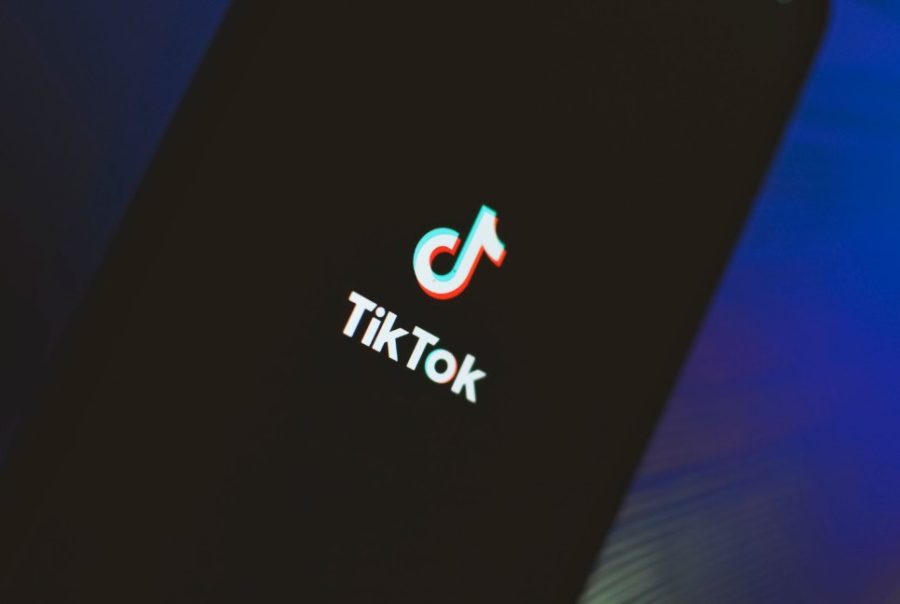TikTok twofold: constitutional rights v.s. national security
United States government revamps TikTok ban
Photo Courtesy of Geri Tech – According to Insider Intelligence, TikTok is predicted to reach 834.5 million monthly users by the end of 2023.
April 12, 2023
TikTok, the popular social media platform for publishing short videos, is under fire by the United States government for speculated security breaches. Although no concrete evidence has proven this accusation, the U.S. stands firm on their push to ban the Chinese owned app, starting with government devices.
“It’s not that we know TikTok has done something, it’s that distrust of China and awareness of Chinese espionage has increased,” said James Lewis, an information security expert at the Center for Strategic and International Studies. “The context for TikTok is much worse as trust in China vanishes.”
TikTok was established in 2016 by the Chinese company ByteDance. The app is predicted to have 834.5 million monthly users by the end of 2023, according to Insider Intelligence.
The allegations against the Beijing-based company ramped up in December of 2022 with a statement by FBI Director Chris Wray.
“The Chinese have the ability to control the app’s recommendation algorithm, which allows them to manipulate content, and if they want to, to use it for influence operations,” Wray said. “All of these things are in the hands of a government that doesn’t share our values, and that has a mission that’s very much at odds with what’s in the best interests of the United States. That should concern us.”
TikTok IOS 25.1.1 has a server connection to mainland China which is run by a top 100 Chinese cyber security and data company Guizhou Baishan Cloud Technology Co., Ltd, according to Internet 2.0, joint U.S. and Australia cyber security organization.
TikTok is believed to be doing what is referred to as data harvesting, which is essentially gathering and storing as much information from a source as possible.
The app is able to grant an unnecessary amount of access to information on user devices, including access to SMS messages, GPS, calendars, microphone, photo library, camera, etc., according to Internet 2.0.
The app also raises suspicion with the unsettling amount of times access is requested. It is not like most social media apps that request access once and leave it at that; TikTok refuses to take no for an answer.
“If the user denies access the application will continuously ask for access. TikTok does this as it runs its code in a loop that if a Boolean (true or false) is stored as false, it will keep prompting until given a true value. It is normal for an application to initially request access to contacts, but TikTok’s persistent, endless harassment for user contacts access is abnormal,” said Thomas Perkins, author of “TikTok Analysis.”
Another major concern of those in favor of the app ban is that it is not quite clear where all of our information from TikTok is being stored. Although an official statement from TikTok claimed that data is stored specifically in Singapore and the U.S., according to Perkins, it was proved to be false.
“We found many subdomains in the IOS application resolving all around the world including: Sydney, Adelaide and Melbourne (Australia); New York City, Las Vegas, San Francisco, San Jose, Monrovia, Cambridge, Kansas City, Dallas, Mountain View (USA); Utama and Jakarta (Indonesia), Kuala Lumpur (Malaysia), Paris (France), Singapore (Singapore) and Baishan (China),” Perkins said.
The information TikTok requests of its users is not a necessity in the functionality of the app itself, which this raises questions why the information is being pried out of us to begin with. It is not unreasonable to believe that there are other motives.
At UW Oshkosh, the use of TikTok on system-owned devices is prohibited as of January 2023. According to the Badger Herald, this restriction is currently enforced on all UW campuses to ensure cybersecurity following the concerns of TikTok.
Wisconsin Gov. Tony Evers signed the Executive Order #184 that officially banned the app from school devices and technology.
TikTok continues to flourish among young people and businesses across the U.S., but this doesn’t go without warning by the United States government. The push to ban TikTok is not a recent movement, but is regaining momentum once again.
Whether the ban of the popular social media app is an act of national security or a violation of constitutional rights, government leaders and influencers have the right to believe our information isn’t as secure as we initially thought.














